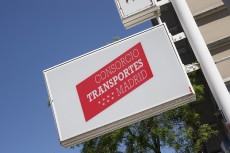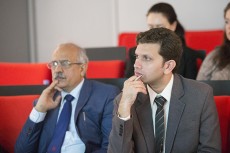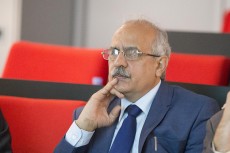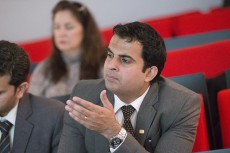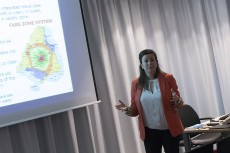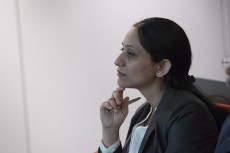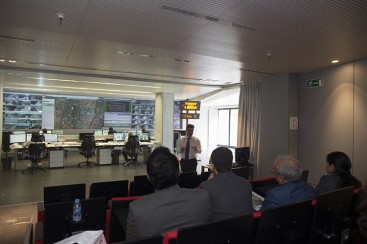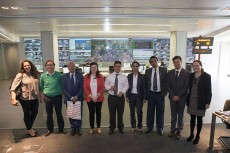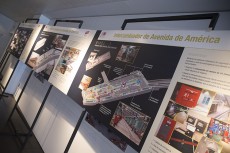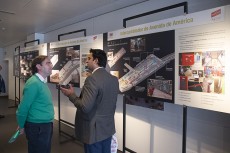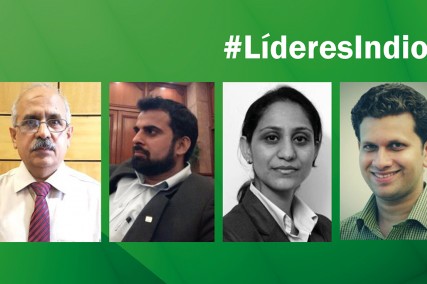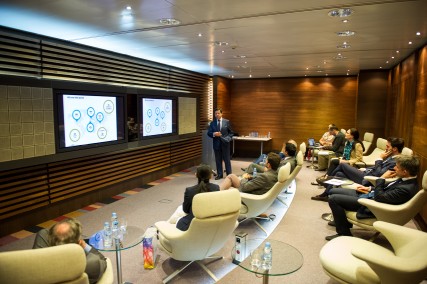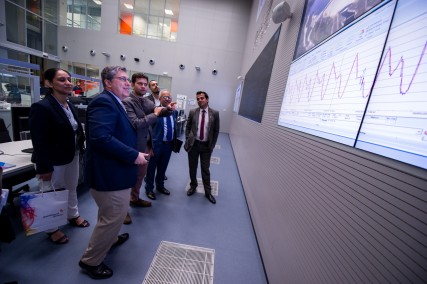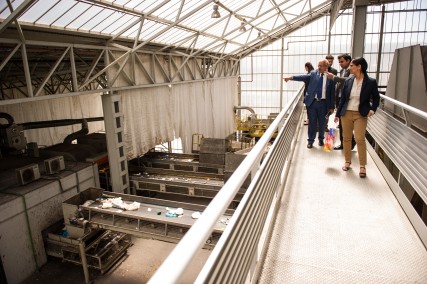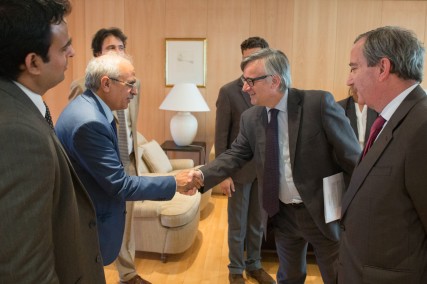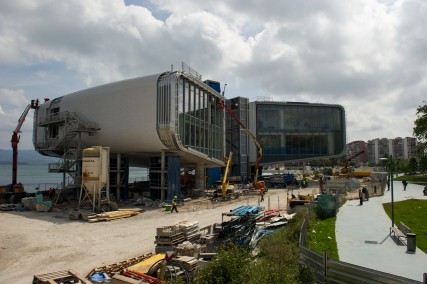With close to 15 million trips a day by bus, metro, train and light rail, Madrid’s Regional Transport Consortium is a world leader in the field. The Indian Leaders gained first-hand knowledge of its organisation and operation during a visit to the premises.
Laura Delgado, Head of External Affairs at the Consortium, showed the division of Madrid’s territory into concentric areas (capital, metropolitan area and outer ring) and the adaptation of the fare system to these areas. This aspect was especially relevant to the Leaders given the parallelism with the main regions of India. The capital, Delhi, whose metro network is similar in size to that of Madrid, has a smaller city centre, though its metropolitan area is much larger. Mr. Kunal Purohit found it especially interesting “to see the similarities between Madrid and Indian cities and look at the solutions provided”.
These solutions are related to modal integration plans, a fundamental feature of Madrid’s urban development where two-thirds of public transport users take at least two different means of transport every day. The Consortium’s modal integration plan is based on the enlargement of the metro and light rail network, the use of HOV lanes and transport hubs.
The operation of transport hubs was what attracted the Indian delegation’s attention the most, building underground bus stations was especially relevant to reduce inconvenience for people as much as possible, with a concept that is more reminiscent of an airport than a traditional bus station. Dr. Mandenvra Deswal, Head of the Confederation of Indian Industry, was particularly interested in the concessions system used to build and maintain these as well as the way the investment is recovered through the operation of retail outlets and the payment of a stipulated amount per passenger.
Tomás Melero, Director of Madrid’s Public Transport Management Centre (CITRAM), detailed the 24-hour coordination and management of over 40 companies integrated within the Consortium. More than 20,000 CCTV cameras and 6,000 screens, on top of over 5,000 constantly-monitored vehicles, generate an incredible amount of information that CITRAM uses both for the correct upkeep of the service as well as to let commuters know the status of all transport in the region.
This immediate access to information is one of the keys to urban development in Madrid over the past few years. According to Tomás Melero, the Consortium was created for planning purposes, but from 2008 onward they decided to go beyond this and do real-time monitoring in order to offer added value to commuters and the Consortium member companies alike.
After the presentation at the Consortium’s headquarters, the Leaders had a chance to visit the metro network and the station of Príncipe Pío. Together with Ramón Soubrier, Head of the Consortium, they were able to appreciate the organisation at transport hubs, multimodal interconnection and the passenger boarding and alighting system on buses. The emergency systems at these hubs are unique in Europe, as underground bus stations are an innovative concept. This peculiarity has brought great recognition to the Regional Transport Consortium for its safety measures, among others.
5th Indian Leaders Programme report.
Indian Leaders profiles.
Photo gallery of the visit to Regional Transport Consortium.
Photo gallery of the visit to Principe Pio Station.


